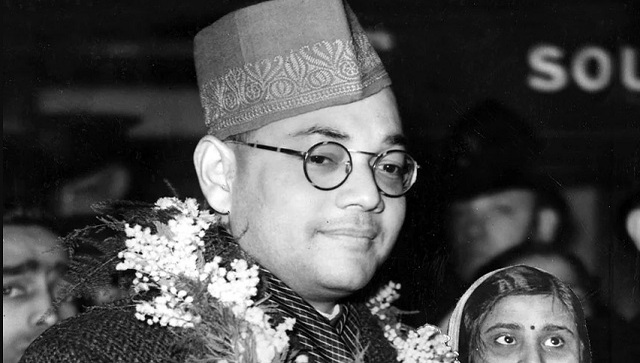During the celebrations of “Azadi ka Amrit Mahotsav”, we must go back, again and again, to what made India a great and independent nation. We realise that this nation was shaped by a special type of anti-imperial, colourful cosmopolitanism, with the participation of actors as vividly different and spectacular as Mahatma Gandhi and Subhas Chandra Bose. From two ends of the Indian Ocean, South Africa and Singapore, Gandhi and Bose, albeit at different times, helped to fashion the nation that India became. Verbal and visual cross-currents thus combine in our subcontinental space with oceanic perspectives from two vantage points in the Indian Ocean system. From Aden to Singapore, the British empire ruled the Indian Ocean and its sub-regions, its supremacy being challenged, briefly, only with the Japanese conquest of much of oceanic East Asia during World War II. Japanese imperialism, of course, was hardly a better option, causing as it did untold miseries upon the peoples of Asia that it conquered and colonised.
***
Also Read **How Netaji Bose was killed when he was ‘alive’ — and then we tried to kill his memory** **New translation reveals Mukherjee Commission ignored Renkoji temple's nod for DNA test of ashes, says Netaji kin**
***
The Indian Ocean world was our real neighbourhood, something Gandhi understood very well from his childhood. From his tiny study room upstairs in the family home in Porbandar, he looked across the vistas of the Arabian Sea. Little knowing that he would sail across those waters many times, first to become a barrister in England, then a “Mahatma” in South Africa. Gandhi’s foundational text, Hind Swaraj (1909), was not only a critique of modern (Western) civilisation, but also an appeal to return to a traditional and more authentic Indian, I dare say Hindu, civilisational narrative as a prerequisite to freedom and self-rule. Such a civilisation he called sudhoro, the positive or the beneficent stream of life as opposed to the kudharo (negative flow) of capital and machine driven, hence amoral, modernity. Gandhi wrote Hind Swaraj between 13th and 22nd November 1909 on board the S.S. Kildonen Castle, on his way from England to South Africa. The journey traversed two oceans, the South Atlantic and the Indian. Indeed, it reflects the tensions between these two worlds of the colonised and the colonisers. “Hind Swaraj” literally means Indian self-rule. For Gandhi this was not merely political independence but the formation of a society of highly evolved individuals who insisted (agraha) on truth (satya) and non-violence (ahimsa). Such individuals would be self-regulating and self-governing, thus in need of little external control or supervision. Hind Swaraj was thus a programmatic proclamation of a new political methodology, soul-force as opposed to brute-force, non-violence as opposed to violence, not just to win India’s freedom, but also to construct an alternate nationhood and modernity. From Gandhi’s Hind Swaraj (Indian self-rule) to Bose’s Azad Hind Fauj (Free India Force) is an interesting journey. Swaraj invokes ancient, Upanishadic ideals; it was originally a spiritual concept implying self-mastery and self-illumination, thus literally a kind of “enlightenment”. Applied to the body politic, it implied a notion of enlightened governmentality. Many such modern political terms including svatantra, originally used to describe the Absolute in Kashmir Shaivism, are today the usual word for independence. Similarly, svaraj always aimed at more than nation formation; Tilak, Naoroji, Aurobindo, Tagore, Gandhi and other leaders who resorted to this word implied by it a much wider vision of society and human destiny. Swaraj to them was a cosmopolitan, not sectarian ideal. Azad Hind, on the other hand, literally means “free India” — instead of the Sanskritic svaraj, Bose uses azad, a Persio-Urdu word, much more commonly understood by the masses. Under Bose, the INA’s motto of Ittefaq (Unity), Itmad (Faith), and Kurbani (Sacrifice) no doubt preferred Hindustani words of Persio-Arabic extraction, but the invocation of spiritually-charged terms such a “faith” and “sacrifice” remained. There was no mistaking the cause of nationalism as anything but sacred; nationalism was no less than a sort of religious faith. Bose’s Indian National Army was the second such army raised in Singapore. The first attempt, made by Rash Behari Bose in 1942, after the fall of Singapore, failed. It was Netaji who was destined to make it happen. He landed in Singapore from Japan on 2 July 1943 to an enthusiastic welcome, assuming command of the Indian National Army on 4 July 1943. Addressing his troops the following day, he gave them the resounding call, “Chalo Dilli” or “Onward to Delhi.” India’s independence was proclaimed from Singapore on 21 October 1943, with the formation of an interim government, which several countries actually recognised. To accomplish this extraordinary feat, Bose had not only to flee from house arrest in India under disguise, undertake a long and arduous journey to Germany, but, in order to further the cause of India’s independence, to align his anti-Anglo-American and anti-imperial rebellion much more decisively with the Japanese occupiers of Singapore. This is Part 1 of the three-part ‘Giving Netaji his due’ series. The author is a professor of English at Jawaharlal Nehru University, New Delhi. Views expressed are personal. Read all the Latest News , Trending News , Cricket News , Bollywood News , India News and Entertainment News here. Follow us on Facebook, Twitter and Instagram.


)
)
)
)
)
)
)
)
)



